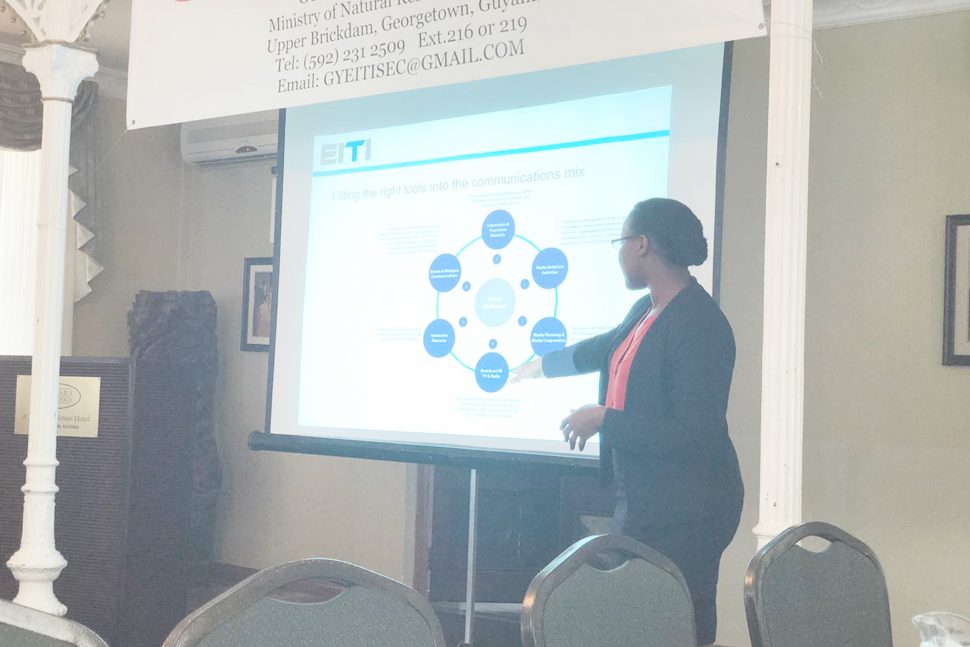Natural resources watchdog GYEITI on Tuesday queried how it should respond to offers of aid from US oil company ExxonMobil and was told that it should use “good judgement”.
This was the advice of Dr Francisco Paris, representative of the Extractive Industries Transparency Initiative (EITI) Inter-national Secretariat to members of Guyana’s EITI and attendees on the final day of a two-day capacity building workshop on Tuesday.
EITI is a global body aimed at good governance of oil, gas and mineral resources. A local chapter has been set up and will among other things track all payments by ExxonMobil to Guyana.
The closing day of the workshop featured presentations on the EITI reporting cycle, communications strategy, social and economic spending, understanding systemic disclosure of EITI information, revenue allocation and an open discussion with a questions and answers segment.
During the discussions on disseminating information about the EITI and its role in the country, Coordinator of the National Secretariat of the Guyana-EITI (GYEITI), Rudy Jadoopat questioned Paris and Gisela Granado, another representative of the international body, on how to go about responding to offers of assistance from private sector entities.
He noted that currently the GYEITI has received offers from ExxonMobil for assistance but they are unsure of how to deal with them.
“In Trinidad and Tobago I was part of a workshop that was sponsored by Repsol. They paid the hotel venue and when we were there we said publicly we were grateful to the contributions of Repsol. We made it public; so exercising your good judgement is important. You don’t have anything to hide so just say it,” Paris explained
He said that if there is a community event where a local company is positioned, then there is no problem with having them facilitate the event once their contributions are publicly disclosed.
“It is nothing suspicious if you don’t make it suspicious,” he said, while pointing out that they should refrain from accepting cash and only use the private sector entities to facilitate or sponsor events.
Paris and Granado were also questioned about where they can secure funding to assist with the GYEITI’s information dissemination programmes, especially for the indigenous communities that are hard to reach.
Granado explained that while she was working with Trinidad and Tobago’s EITI, they had approached Petrotrin to fund a dissemination workshop, which they agreed.
“We also had funding from the World Bank and we were very creative but we were proactive. We went after the British Embassy. We went after every embassy, every donor that you could think of, every company and we were aggressive, and I think you need to align the interest of companies, or those who have funding with the institutional donors and then see how you can use that funding,” Granado explained.
Along with representatives from the GYEITI’s Multi-stakeholders Group (MSG), officials from the Guyana Geology and Mines Commission, Guyana Revenue Authority, Environmental Protection Agency and the Government were also present.
The aim of the workshop was to build capacity between the MSG and the relevant stakeholders who GYEITI will be interfacing with, when compiling its annual reports.










